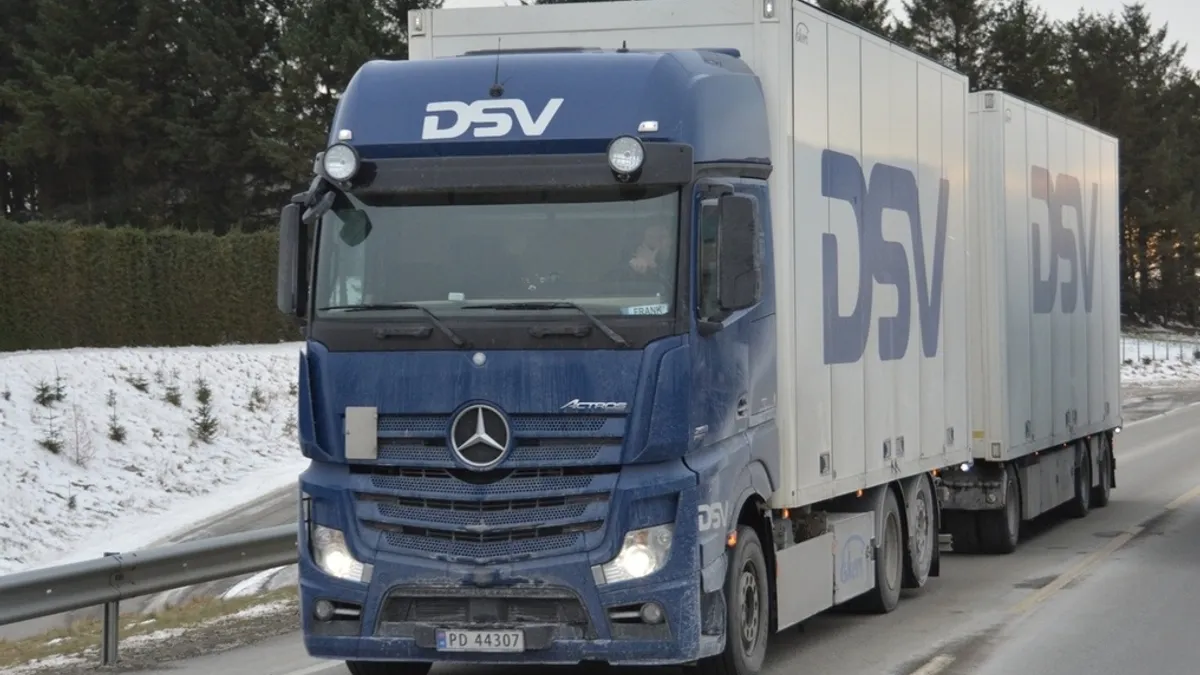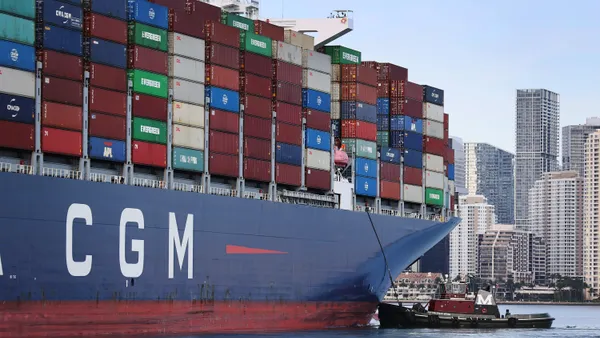Dive Brief:
- DSV has launched its Silkway Express route that will connect China to Europe via road with transit times of around 14-18 days, the Denmark-based transportation and logistics company announced this week.
- The route is intended to be an alternative to tight capacity modes of air, ocean or rail. The trip from China to Denmark by airfreight is 3-7 days, but this is expected to elongate during October and November due to increased demand, a DSV spokesperson said.
- DSV pitches the service as a way to avoid the tight scheduling the other freight modes require, saying shippers won't need to worry about "closing and cut off for any vessel, rail or air schedule." Customers can also reroute freight during transit.
Dive Insight:
Getting freight out of China has become increasingly expensive for shippers in recent months — and that's if they can even find capacity.
Airfreight rates between China and Europe have been trending upward since mid-July, increasing nearly 27% between July 13 and Oct. 12 to reach $3.90 per kilogram, according to the TAC Index. The current rate represents about a 47% increase YoY in the price to move freight.
Rates for ocean freight to traverse the Suez Canal have trended downward in recent weeks but are still up nearly 79% YoY, according to Freightos.
Airfreight has struggled with capacity since the early days of the coronavirus pandemic, when passenger airlines cut back on flights, resulting in a reduction of belly capacity.
Ocean freight has had capacity issues of its own, which were first caused by blank sailings. But now carriers have reinstated capacity, and constraints are the result of an influx of cargo that exceeds available vessel space.
Logistics companies are also offering rail services connecting China to Europe. DSV has a rail option connecting the continents and pitches it as a solution that is cheaper than airfreight and faster than ocean shipping. And other carriers, including DHL and Maersk, have also set up rail connections between China and Europe within the last year.
"The bulk of rail shipments from Asia to Europe are for industries such as automotive, consumer, retail and fashion, industrial manufacturing and technology," DSV said on its website.
Logistics providers have also increased their trucking connections between China and Europe in recent years. Ceva set up a connection for trucking between China and Poland last year, according to The Loadstar. And Chinese logistics providers have increasingly turned to trucks to move goods to Europe during the pandemic as a result of capacity issues in other modes, according to China Daily, which quoted logistics executives saying that trucking also cut down on the time a shipment spends in customs.
DSV anticipates even more demand for freight heading into peak season, the spokesperson said, adding that the Silkway Express route will add "a lot" of capacity with the goal of providing relief to shippers.
"Right now, after Golden Week in China, we see a normal peak in the market which makes the demand higher than the capacity, so companies need to look into alternatives," the DSV spokesperson said.















